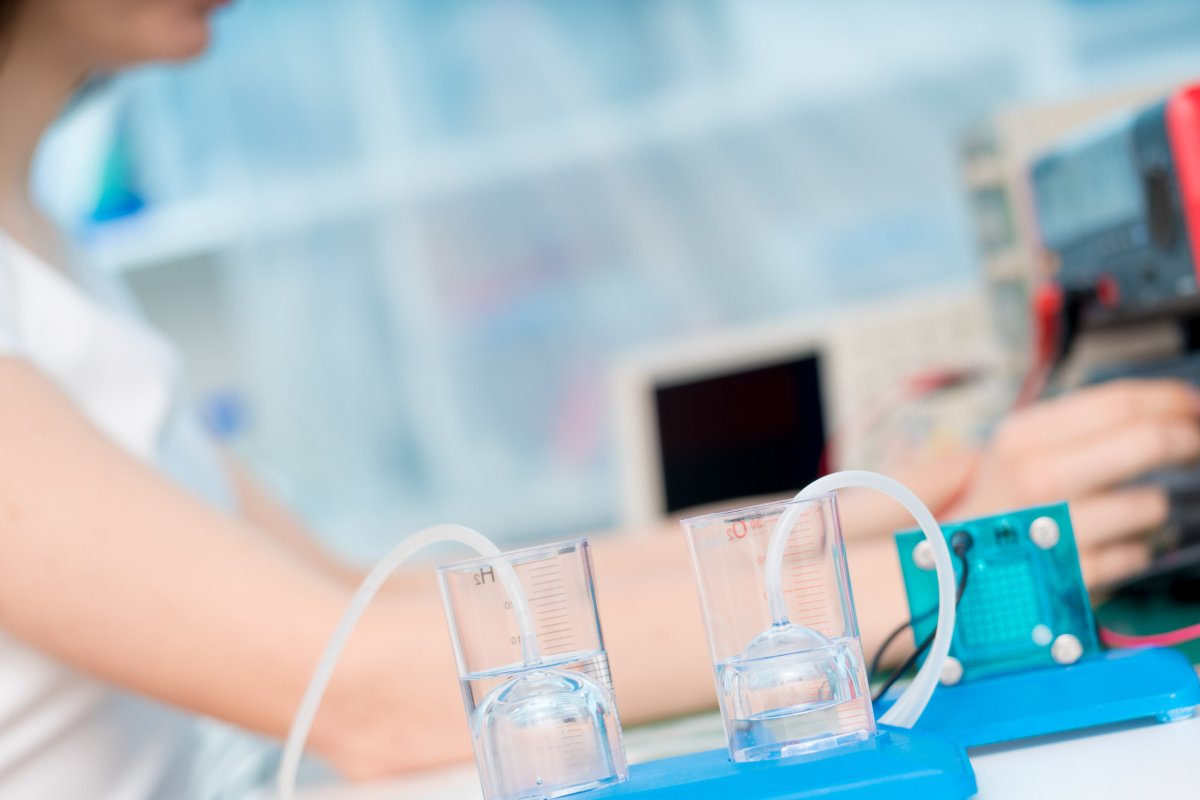Hydrogen could play a key role in cultivating a "green and sustainable" source of energy to power portable fuel cells of the future, researchers say.
Hydrogen is believed to be a feasible alternative to fossil fuels because of its affordability and environmental friendliness. It is found throughout the environment, but producing it involves efficiently separating it from the compounds it is contained it. There are currently a number of ways this can be done, but methods can be slow and expensive.
However, a team of scientists has now said hydrogen fuel could be generated "on-demand" thanks to a separation process structured around the chemical element bismuth, a team of scientists has said.
The findings, from researchers with the Chinese Academy of Sciences and Tsinghua University, are published today in the Journal of Renewable and Sustainable Energy.
Their paper says hydrogen fuel cells converting chemical energy to electrical energy could be used to power "aircraft, vehicles and portable devices." However, that is only possible if cells have a high-quality, stable, hydrogen supply—a problem them attempted to overcome.
Researchers used an alloy, consisting of gallium, indium, tin and bismuth metals, to generate hydrogen by making it come into contact with an aluminum plate immersed in water.
The hydrogen is then connected to a proton exchange membrane fuel cell (PEMFC), which is able to convert the chemical energy into electrical energy.
The research suggested bismuth had a "large effect" on hydrogen generation when compared to an alloy previously tested, which was composed of gallium, indium and tin. The alloy that included bismuth was found to produce a more stable and durable reaction.
Author Jing Liu, a professor at the Chinese Academy of Sciences, said the technique had a higher conversion efficiency when compared with traditional power generation methods.
"It could start rapidly and run quietly. Moreover, a key benefit to this process is that the only product it generates is water, making it environmentally friendly," Liu said in a statement.
"There are various problems in existing methods for post-reaction mixture separation. An acid or alkaline solution can dissolve aluminum hydroxide but also causes corrosion and pollution problems. The merit of this method is that it could realize real-time and on-demand hydrogen production. It may offer a possibility for a green and sustainable energy era."

Uncommon Knowledge
Newsweek is committed to challenging conventional wisdom and finding connections in the search for common ground.
Newsweek is committed to challenging conventional wisdom and finding connections in the search for common ground.
About the writer
Jason Murdock is a staff reporter for Newsweek.
Based in London, Murdock previously covered cybersecurity for the International Business Times UK ... Read more
To read how Newsweek uses AI as a newsroom tool, Click here.








